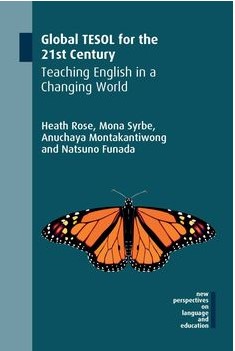Home > Research Projects > Oral language development through drama: Practitioner needs and perspectives
Oral language development through drama: Practitioner needs and perspectives
The Project
This project investigated primary school teachers’ perceptions regarding the use of drama for developing young (language) learners oral language and communication skills.
To be effective, an intervention needs to be endorsed by the teachers who implement it. This poses a challenge when it comes to an intervention delivered through the medium of drama, since not all teachers are comfortable with and trained in using drama-based activities in their classroom. Contributing to the development of a large-scale drama-based oral language intervention, this project aims to explore primary school teachers’ views on the use of drama. It involved the administration of two focus groups with 12 practitioners (N=4 in England, N=8 around the world). During the focus groups, the participants shared their practices and beliefs concerning the use of drama-based activities for oral language development and identified the needs and challenges they experience as they endeavour to incorporate drama into their teaching. The project furthered our understanding of how teachers perceive the potential impact of drama-based activities on students’ oral language skills and overall academic performance, and what are the classroom-level, school-level and wider-level constraints they face when attempting to implement creative pedagogies.
Additional Information
The data analysis was led by Isabel Logan, who was sponsored by the UNIQ+ Research Internship programme (2025).
Research Team
More Projects
-
AVENUE: Added Value of English-medium and International University EducationMay 2026 - May 2029Increasingly, universities in non-Anglophone countries are teaching through English-medium instruction (EMI) rather than the local language or students’ first language.
-
InTRACt: Interplay of Text, Reader And Context in children’s digital reading comprehensionFebruary 2026 - February 2027As childhood literacy undergoes a major transformation, with reading increasingly moving from paper to screens, a significant gap persists between scientific research and the design of educational apps.
-
Same But Different: Systems Of Smoothing Noun Entropy In CommunicationJanuary 2025 - January 2028This project aims to explore how grammatical gender systems in language play a critical role in reducing the unpredictability of nouns.
-
Motivation, Engagement and Achievement in Arabic as an Additional Language: An Empirical Investigation in UK Secondary SchoolsOctober 2025 - September 2026This study examines the motivational profiles of UK secondary school learners of Arabic across its multiglossic forms.
-
From the page to the stage: A feasibility study on using theatre to improve EAL children’s communicative skillsJanuary 2020 - May 2020This project explored whether drama can be used as a tool to develop the linguistic, communication, and teamwork skills of children with EAL.
-
Motivation, Engagement and Achievement in Arabic as an Additional Language: An Empirical Investigation in UK Secondary SchoolsOctober 2024 - September 2025An empirical study into the motivation, engagement and achievement of learners of AL2 in UK secondary schools.
More News
-
 NewsNew report on educational attainment in school pupils with English as an Additional LanguageFebruary 5, 2025
NewsNew report on educational attainment in school pupils with English as an Additional LanguageFebruary 5, 2025 -
 NewsReport published today provides evidence on what influences EAL learners to mitigate language learning lossMarch 17, 2021
NewsReport published today provides evidence on what influences EAL learners to mitigate language learning lossMarch 17, 2021 -
 NewsElizabeth Wonnacott to join as Associate Professor of Applied LinguisticsApril 14, 2020
NewsElizabeth Wonnacott to join as Associate Professor of Applied LinguisticsApril 14, 2020 -
 NewsDepartment Academics And Doctoral Students Author New Book On Language Teaching In Global ContextsFebruary 20, 2020
NewsDepartment Academics And Doctoral Students Author New Book On Language Teaching In Global ContextsFebruary 20, 2020 -
 MediaDon’t leave the L1 out of English-taught programs, OUP experts warnFebruary 15, 2019
MediaDon’t leave the L1 out of English-taught programs, OUP experts warnFebruary 15, 2019
Project Details
Start date: September 2024
End date: August 2025
Funder: Department Small Grant
Research Team
More Projects
-
AVENUE: Added Value of English-medium and International University EducationMay 2026 - May 2029Increasingly, universities in non-Anglophone countries are teaching through English-medium instruction (EMI) rather than the local language or students’ first language.
-
InTRACt: Interplay of Text, Reader And Context in children’s digital reading comprehensionFebruary 2026 - February 2027As childhood literacy undergoes a major transformation, with reading increasingly moving from paper to screens, a significant gap persists between scientific research and the design of educational apps.
-
Same But Different: Systems Of Smoothing Noun Entropy In CommunicationJanuary 2025 - January 2028This project aims to explore how grammatical gender systems in language play a critical role in reducing the unpredictability of nouns.
-
Motivation, Engagement and Achievement in Arabic as an Additional Language: An Empirical Investigation in UK Secondary SchoolsOctober 2025 - September 2026This study examines the motivational profiles of UK secondary school learners of Arabic across its multiglossic forms.
-
From the page to the stage: A feasibility study on using theatre to improve EAL children’s communicative skillsJanuary 2020 - May 2020This project explored whether drama can be used as a tool to develop the linguistic, communication, and teamwork skills of children with EAL.
-
Motivation, Engagement and Achievement in Arabic as an Additional Language: An Empirical Investigation in UK Secondary SchoolsOctober 2024 - September 2025An empirical study into the motivation, engagement and achievement of learners of AL2 in UK secondary schools.
More News
-
 NewsNew report on educational attainment in school pupils with English as an Additional LanguageFebruary 5, 2025
NewsNew report on educational attainment in school pupils with English as an Additional LanguageFebruary 5, 2025 -
 NewsReport published today provides evidence on what influences EAL learners to mitigate language learning lossMarch 17, 2021
NewsReport published today provides evidence on what influences EAL learners to mitigate language learning lossMarch 17, 2021 -
 NewsElizabeth Wonnacott to join as Associate Professor of Applied LinguisticsApril 14, 2020
NewsElizabeth Wonnacott to join as Associate Professor of Applied LinguisticsApril 14, 2020 -
 NewsDepartment Academics And Doctoral Students Author New Book On Language Teaching In Global ContextsFebruary 20, 2020
NewsDepartment Academics And Doctoral Students Author New Book On Language Teaching In Global ContextsFebruary 20, 2020 -
 MediaDon’t leave the L1 out of English-taught programs, OUP experts warnFebruary 15, 2019
MediaDon’t leave the L1 out of English-taught programs, OUP experts warnFebruary 15, 2019






